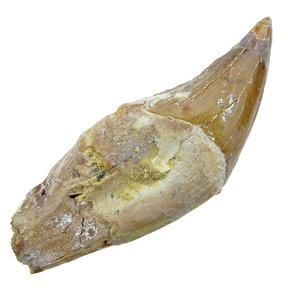The basilosaurus was an impressive prehistoric whale with conical teeth on the front and triangular teeth with many points on the back. The animal had a bite force of at least 1670 kg and lived during the late Eocene. Read more.
The basilosaurus was an impressive prehistoric whale with conical teeth on the front and triangular teeth with many poin...
The basilosaurus was an impressive prehistoric whale with conical teeth on the front and triangular teeth with many poin...
The basilosaurus was an impressive prehistoric whale with conical teeth on the front and triangular teeth with many poin...
The basilosaurus was an impressive prehistoric whale with conical teeth on the front and triangular teeth with many poin...
Prehistoric whale
The Basilosaurus was an impressive prehistoric whale that lived during the Late Eocene, about 41.3 to 33.9 million years ago. This predatory whale was discovered in 1834 and was the first prehistoric whale known to science. The Basilosaurus was at the top of the food chain as a predator and lived in warm tropical environments with lots of sea grass. This prehistoric whale would have coexisted with a diversity of animals such as dolphins, whales turtles and many species of sharks.
Characteristics of the Basilosaurus
The first fossil remains of a basilosaurus were discovered in the United States. Initially, it was assumed that they had found a reptile-like creature, giving it the name -saurus (this means reptile in ancient Greek). Later, however, it became clear that the animal was an early marine mammal. However, the name remained. Basilosaurus was probably one of the first fully aquatic whales and one of the largest animals of the Paleogene.
Basilosaurus teeth
The teeth of the Basilosaurus had a good chewing function, as demonstrated by the heavy wear on the teeth, indicating that food was first chewed and then swallowed. Scientists were able to estimate the biting power of the Basilosaurus by analysing an attacked skull bone from another prehistoric whale. These analyses showed that its bite force was at least 1670 kg and possibly even higher than 2000 kg, which is more than the modern white shark! This indicates that the Basilosaurus was a dangerous predator with highly specialised teeth. At the front of the jaw were conical teeth with one tooth point. At the back of the jaw are triangular teeth with many points. Between them are transitional teeth.




